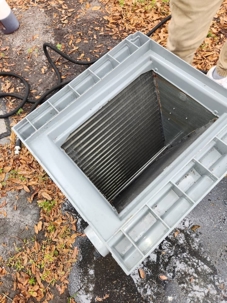What is an HVAC System?
An HVAC system, which stands for Heating, Ventilation, and Air Conditioning, plays a vital role in maintaining the comfort of indoor spaces. It not only regulates temperature but also ensures the quality of air through proper ventilation. A typical HVAC system includes various components such as furnaces, air conditioners, heat pumps, ductwork, and thermostats. When upgrading or replacing an HVAC system, it is essential to understand the legal framework surrounding installation, including the need for permits.
Why is a Permit Required for HVAC Replacement?
Obtaining a permit for HVAC replacement is a crucial step that safeguards both homeowners and contractors. It ensures that the installation adheres to local building codes designed to promote safety and environmental standards. A permit also allows local authorities to track installations and ensure they meet safety regulations. Without a permit, homeowners may face legal ramifications, fines, or difficulties when claiming insurance for any damages related to improper installation.
Understanding HVAC Replacement
When is HVAC Replacement Necessary?
HVAC replacement becomes necessary when a system fails to meet performance standards or experiences complete breakdowns. Factors influencing the need for replacement include the age of the unit, efficiency issues, frequent repairs, and escalating energy bills. Homeowners should recognize that HVAC systems typically have a lifespan of 10 to 20 years, depending on usage and maintenance.
Common Signs That Your HVAC Needs Replacing
Several indicators suggest that it’s time for an HVAC replacement. These include:
- Increasing Energy Bills: A noticeable spike in energy costs can indicate that the HVAC system requires more energy to function effectively.
- Frequent Repairs: The cumulative cost and inconvenience may warrant a replacement if you repeatedly call for repairs.
- Inconsistent Temperatures: Hot or cold spots in your home suggest that your HVAC system may not distribute air evenly.
- Unusual Noises: Loud or strange sounds often signal mechanical issues that could foreshadow system failure.
- Age of the System: If the HVAC unit is over 15 years old, consider a replacement for improved efficiency and technology.
Why Permits are Essential for HVAC Replacement
Ensuring Compliance with Local Building Codes
Local building codes establish standards for construction and installations to enhance safety and performance in HVAC systems. Permits help ensure installations comply with these regulations, minimizing risks associated with inferior work.
Safety Considerations in HVAC Installations
Engaging in HVAC replacement without a permit poses safety concerns. A normally functioning HVAC system is critical in preventing health hazards, such as carbon monoxide leaks from faulty furnaces or improper ventilation systems. A permit ensures that installations meet safety standards.
Avoiding Fines and Legal Issues
Failing to secure a permit can expose homeowners to fines or legal disputes. Most municipalities impose penalties for non-compliance, which can lead to costly repercussions. Additionally, skipping the permitting process may complicate future property transactions.
Types of HVAC Permits
Residential HVAC Replacement Permits
Required when replacing HVAC systems in primary residences to ensure compliance with community safety standards.
Commercial HVAC Replacement Permits
Necessary for commercial properties, typically involving more complex regulations and inspections
Differences between Permits for New Installations vs. Replacements
New installations often require more extensive documentation than replacements, especially if the previous system adhered to local codes.
When Do You Need a Permit for HVAC Replacement?
Local and State Regulations
Permit requirements vary by locality and state. It’s important to check local regulations regarding HVAC replacements, as municipalities may have distinct rules.
Scenarios Where a Permit is Mandatory
Generally, permits are mandatory when involving:
- Replacing a heating or cooling system, including furnaces and air conditioners.
- Making significant modifications or upgrades to existing systems.
- Adjusting ductwork or other integral components.
Situations Where a Permit May Not Be Required
Some minor repairs, such as changing filters or adding refrigerant, may not require a permit. However, any significant modifications typically require formal approval.
How to Apply for an HVAC Replacement Permit
Steps to Gather the Necessary Documents
When applying for a permit, homeowners should prepare several documents:
- Detailed installation plans.
- Description of existing systems.
- Information about the new equipment being installed.
- Proof of contractor licensing (if applicable).
Online vs. In-Person Application Processes
Most jurisdictions allow applications to be submitted online, but homeowners may visit local building departments for assistance. Understanding the process specific to your locality is essential for timely approval.
Common Mistakes to Avoid During the Application Process
To ensure a smooth permitting process, avoid these common mistakes:
- Failing to provide complete information.
- Not submitting the required documents.
- Ignoring local deadlines for applications.
- Neglecting to check on specific requirements for HVAC replacements.
Cost of HVAC Permits
How Much Do HVAC Replacement Permits Typically Cost?
HVAC permit costs can range from $50 to several hundred dollars, depending on the complexity and size of the project. Accurate cost estimates ensure that homeowners are financially prepared for the project.
Factors that Influence the Cost of the Permit
Factors influencing permit costs include:
- Type of HVAC being installed or replaced.
- Size and location of the property.
- Local authorities require additional inspections.
Additional Fees and Costs to Be Aware Of
In addition to the permit fee, homeowners may need to budget for inspection fees, re-inspection costs, and potential fines for misinformation or non-compliance.
Timeframes: How Long Does It Take to Get an HVAC Permit?
Typical Approval Times for Permits
Permit approval times vary widely based on locality – a process can take several days to weeks. During busy times, delays are more likely.
Fast-Track Options and How to Expedite the Process
Some jurisdictions offer expedited review processes for an additional fee. Homeowners interested in faster approval should inquire about these options through their local permitting office.
Do You Need a Permitted Contractor to Get an HVAC Permit?
Importance of Hiring a Permitted HVAC Contractor
Hiring a permitted contractor ensures the installation meets all regulatory and safety standards. Permitted professionals are knowledgeable about local codes and can effectively navigate complicated permitting processes.
Can You Apply for a Permit as a Homeowner?
Homeowners can apply for permits independently, but they should be cautious. Due to the complexities involved, most localities recommend hiring a permitted contractor for both applications and installations.
Benefits of Using a Professional HVAC Service
Using a reputable HVAC service – such as Momentum AC & Electric Pro – ensures that work is done correctly and according to specifications, significantly reducing the risk of future issues and ensuring compliance with all legal requirements.
Standard Permit Requirements for HVAC Replacement
Inspection Requirements Before, During, and After Installation
Many jurisdictions require inspections at various stages of HVAC installation. This may include pre-installation inspections to ensure readiness, inspections at installation completion, and follow-ups to assess operational efficiency.
Documentation and Plans Required by Local Authorities
Documentation may include:
- Building plans.
- Manufacturer specifications for new equipment.
- Proof of compliance with energy efficiency guidelines.
What Happens During a Permit Inspection?
What Inspectors Look for in HVAC Replacement Installations
Inspectors evaluate safety standards, compliance with local codes, and proper component installation. They also check for potential hazards, including gas leaks and inadequate ventilation.
How to Prepare for the Inspection
To prepare for an inspection, ensure that the installation area is accessible. Have documentation ready and address any visible issues that might raise concerns.
Consequences of Failing the Inspection
If an HVAC installation fails inspection, homeowners may need to make modifications to comply with codes and re-schedule a follow-up inspection, which can delay overall project completion.
Consequences of Skipping the Permit Process
Legal Ramifications of Not Obtaining an HVAC Permit
Neglecting the permit process can result in fines and penalties imposed by local authorities. Additionally, unpermitted work can lead to further legal complications, including the necessity of reversing unapproved installations.
Risks to Property Insurance Claims
Insurance policies may not cover damages related to unpermitted work. Homeowners who attempt to claim insurance for problems arising from installations that didn’t comply with local codes will face challenges.
Potential Penalties and Fines
Depending on local laws, potential penalties for unpermitted HVAC replacements can range significantly. Fines can quickly accumulate with ongoing non-compliance.
State-Specific HVAC Permit Requirements
Overview of Differing Regulations Across States
Each state has its regulations regarding HVAC permits, making it vital for homeowners to understand their local guidelines.
How to Find Your State’s Specific Permit Requirements
Homeowners can typically find permit requirements through state or local government websites, offering comprehensive guidelines for HVAC replacement processes.
Permit Exemptions for HVAC Replacement
Are There Any Circumstances Where a Permit Isn’t Necessary?
Certain minor repairs or replacements may not require a permit. Homeowners should confirm any exemptions with their local building department.
Types of Minor HVAC Repairs or Replacements That May Be Exempt
Common exempt repairs include:
- Replacing filters.
- Like-for-like replacements of HVAC components that are not structurally significant.
DIY HVAC Replacement and Permits
Can Homeowners Replace Their HVAC System Themselves?
Homeowners often contemplate DIY replacements to save costs, but this choice comes with several risks. Lack of experience can lead to improper installations that harm safety or comfort.
DIY vs. Professional HVAC Installation: Risks and Responsibilities
Professional installation minimizes risks by ensuring the job meets local codes. Homeowners should weigh the potential cost savings against the risk of mistakes and subsequent fines.
How HVAC Permits Impact Home Resale Value
Ensuring the Value and Safety of Your Property
Proper installation with permits enhances the safety and resale value of your property. Buyers prefer homes with documented work that complies with local codes.
Why Buyers and Inspectors Look for Valid Permits
Valid permits buttress trust between buyers and sellers, demonstrating that necessary regulations were adhered to during HVAC installations.
Permit Renewal or Extension: What to Do if the Replacement Delays
How Long Do HVAC Permits Remain Valid?
Once issued, HVAC permits are generally valid for a defined period, often six months to one year, depending on local regulations.
What to Do If Your Project Faces Delays
If delays occur, homeowners should contact their local permit office to explore renewal or extension possibilities to avoid fines or lapses in validity.
Common HVAC Permit Problems and How to Solve Them
Permit Rejections: Common Reasons and Fixes
Common reasons for permit rejection may include incomplete applications or insufficient documentation. Addressing these issues promptly can help facilitate a successful re-application.
What to Do If Your HVAC Installation Doesn’t Pass Inspection
If an installation fails inspection, it is crucial to identify the issues, make the necessary corrections, and arrange a subsequent inspection without delay.
Energy Efficiency and Green HVAC Replacements
Do Energy-Efficient HVAC Systems Require Different Permits?
Energy-efficient systems often have unique permitting requirements. Check with local regulations to understand if any additional documentation is needed.
Incentives and Rebates for Upgrading to Eco-Friendly Systems
Many utilities offer incentives and rebates for homeowners choosing eco-friendly upgrades, providing additional financial benefits to switching systems.
Frequently Asked Questions About HVAC Replacement Permits
Do I Need a Permit to Replace My Air Conditioner?
Yes, most jurisdictions require permits for air conditioner replacements to ensure compliance with safety and building standards.
How Long Does the HVAC Permitting Process Take?
The permitting process can vary significantly, with approvals typically taking a few days to a few weeks.
What Happens if My HVAC System Fails Inspection?
Should a system fail inspection, corrective measures must be taken, and a follow-up inspection must be scheduled to ensure compliance.
Can I Sell My House If I Replace the HVAC System Without a Permit?
Selling a home with unpermitted work may complicate transactions and potentially lead to fines or additional inspections.
How Do I Find a Permitted HVAC Contractor in My Area?
Finding a permitted contractor is crucial for achieving compliant installations. Homeowners can search state licensing boards or local HVAC associations.
Will My Insurance Be Affected If I Don’t Get a Permit for HVAC Replacement?
Skipping permits may jeopardize insurance coverage, and claims for damages related to unpermitted installations may be denied.

